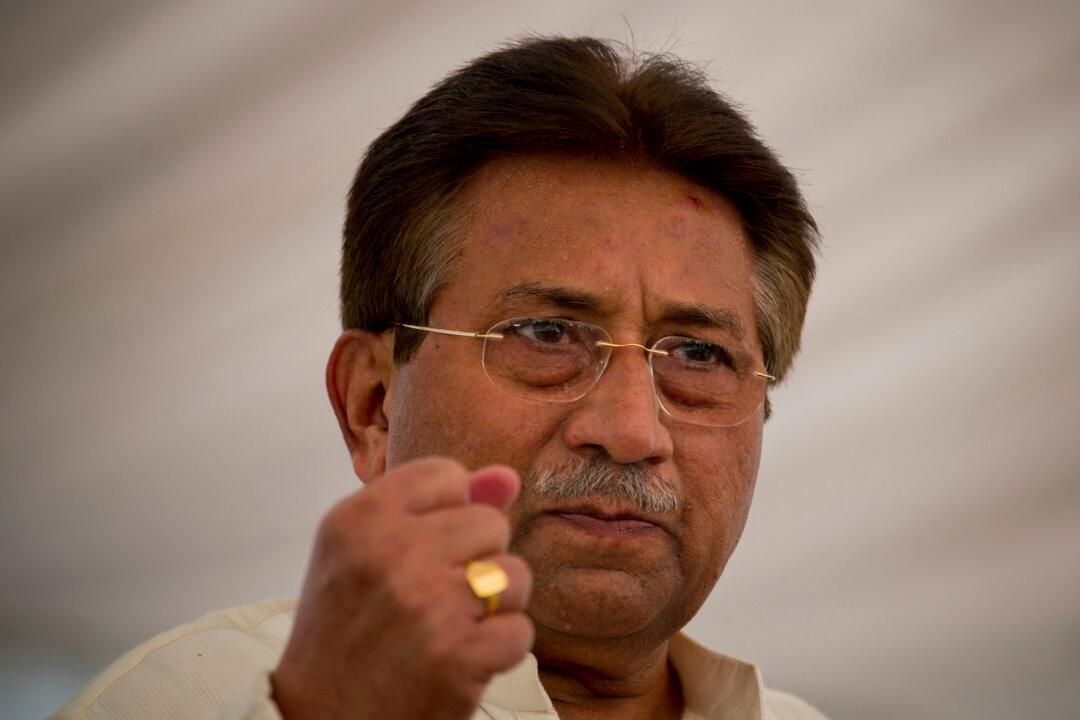Former Pakistan military dictator Pervez Musharraf was sentenced to death in absentia on Dec. 17 for high treason after a six-year legal case.
Salman Nadeem, a government law officer, told Reuters that Musharraf was found guilty of the country’s Article 6 “for violation of the constitution of Pakistan.” A three-person court approved the death sentence in a 2–1 ruling.





